Yugoslavia year 1985 Art – Painting “Josip Broz Tito” Gallery MNH**
Yugoslavia issued an art-themed stamp set in 1985 dedicated to paintings from the “Josip Broz Tito” Art Gallery.
This gallery, officially known as the “Josip Broz Tito” Art Gallery of the Nonaligned Countries, was located in Titograd (now Podgorica, Montenegro) and housed a collection of art from the Non-Aligned Movement countries.
Here are the key details about the stamp issue:
- Year of Issue: 1985
- Theme: Art – Paintings in the “Josip Broz Tito” Gallery (Non-Aligned Countries Art)
- Number of Stamps in the Full Set: This issue typically consists of a set of stamps, and is often seen sold as a complete set of 5 values.
- Subject Matter: The stamps feature reproductions of artworks from the Gallery’s international collection.
- Related Issues: 1985 was also the 5th anniversary of Josip Broz Tito’s death, and Yugoslavia issued other stamps featuring his portrait or related to him that year. The “Art – Josip Broz Tito Gallery” stamps are distinct from the portrait issues.

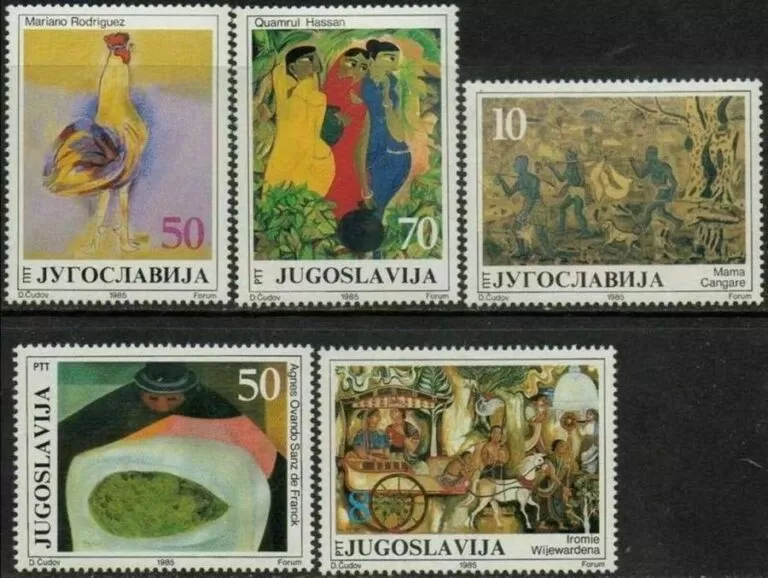
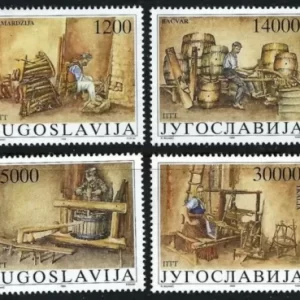

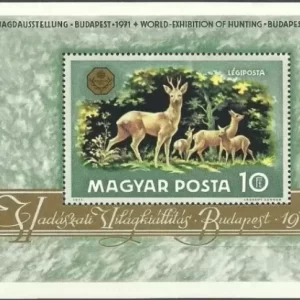
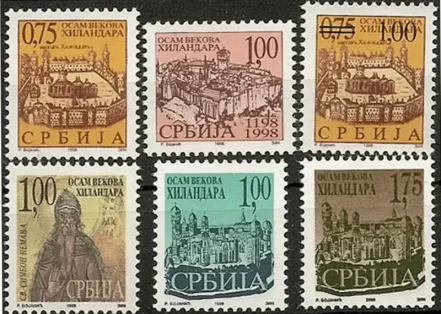
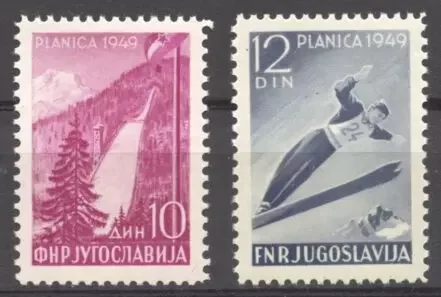


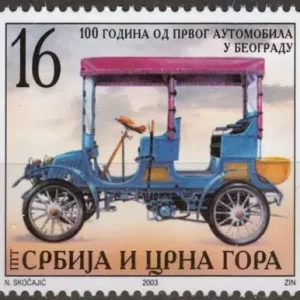


Reviews
There are no reviews yet.